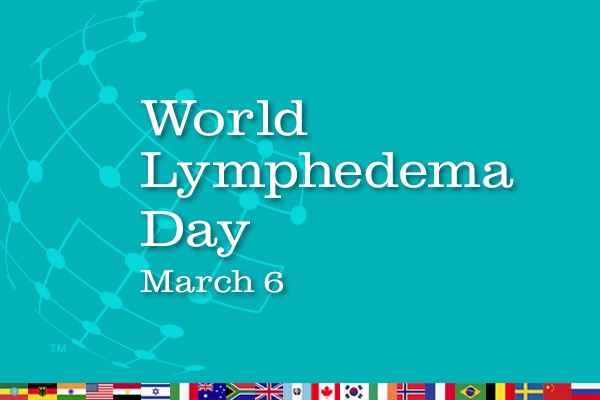World Lymphoedema Day is observed on the 6 th March 2021. In honor of National Lymphedema Day, many cancer specialists contribute towards the better healing of their patients and save many people's lives.
What is lymphoedema?
Long-term swelling that develops due to faulty lymphatic drainage. This may be due to two reasons
Lymphatic drainage system not developed properly
Lymphatic systems may be damaged.
Understanding the lymphatics
The Lymphatic system is part of the circulatory or immune system. It is a network of narrow tubes that drains fluid from all areas of the body. When the lymphatic system fails, there will be complications of fluid balance resulting in swelling of the affected area and associated skin infections. Lymphoedema usually affects limbs and can affect any part of the body. It may at birth or may develop later in life. Accumulation of an excessive amount of protein-rich fluid in the body part is called Lymphedema
Causes of Lymphoedema
Cancer
Trauma and tissue damage
Venous disease
Immobility and dependence
Infection such as cellulitis
Filariasis- Lymphatic Filariasis is the major cause of lymphoedema in subtropical areas of the world. Parasitic Filarial worms are transmitted through mosquito bites.
Symptoms of Lymphoedema
Swelling of limbs
Pain
Heaviness of limbs
Limitation of movement
Tightness
Temperature changes
Clothes, and shoes may feel tighter
Lymphoedema leading to cancer
In severe cases, untreated cases, lymphoedema over many years may lead to a form of cancer known as Lymphogiosarcoma
Diagnosis of Lymphoedema
Lymphoedema has a gradual onset. There are tests to exclude Deep Vein thrombosis (DVT), recurrence of cancer, and infection. Sometimes Lymphoscintigraphy will confirm the diagnosis
Early intervention
Lymphoedema is a progressive disease and is recommended to minimize time and age-related problems. If left untreated, the swelling may progress. Secondary changes include thickening and development of fibrosis. It is vital for lymphoedema patients to be aware of the infection and to seek treatment with first signs as there are higher chances of recurrent infection in addition to danger and further damage to the lymphatic system which is a vicious cycle.
Complications of lymphoedema if left untreated
When there is lymphatic impairment like the flow of the lymphatic system gets disrupted and the ability to transport the fluid gets affected. This leads to a stagnant protein-rich fluid which results in swelling and the availability of oxygen reduces. This interferes with the wound healing process and provides a rich culture medium for bacterial growth that causes infections like lymphadenitis, sepsis, and skin ulcers.
Treatment of Lymphoedema
Lymphoedema cannot be cured but it can be reduced and managed at timely treatment. The stage, location, and severity are very important which will help in the correct diagnosis and prognosis of the treatment.
Improving the patient’s quality of life
Lymphoedema affects the quality of life. How lymphoedema will affect you depends on which part of the body is affected and up to what degree. Lymphoedema should not prevent you from continuing your normal life activities. However, you may need to change some aspects of your life if it involves a lot of activity. Try to continue your life as normal but listen to your body. If activities cause discomfort, approach gently and do it with caution. If you have difficulty in washing, cooking, or getting dressed, approach an occupational therapist. Your therapist and expert might advise you on some techniques and tips which can help you
Hope of Horizon
Relationships and feelings
Other people may tend to ask about your lymphedema. How you approach and respond will depend upon your swelling. It may be quite usual that sometimes you might be angry with your swelling and have negative thoughts about it. If you find yourself distressing, discuss with your expert doctor who can take some counseling sessions for you.
Diet
Being overweight may affect your general health and lymphedema. If you are worried about your weight, discuss it with your family doctor. There is no special diet, try to eat healthy meals which are nutritious and balanced.

 Learn more about Lymphoedema and how you can improve the quality of life with it
Learn more about Lymphoedema and how you can improve the quality of life with it 









.jpeg)

.jpg)







.jpeg)



.jpg)


.jpg)




.jpg)


